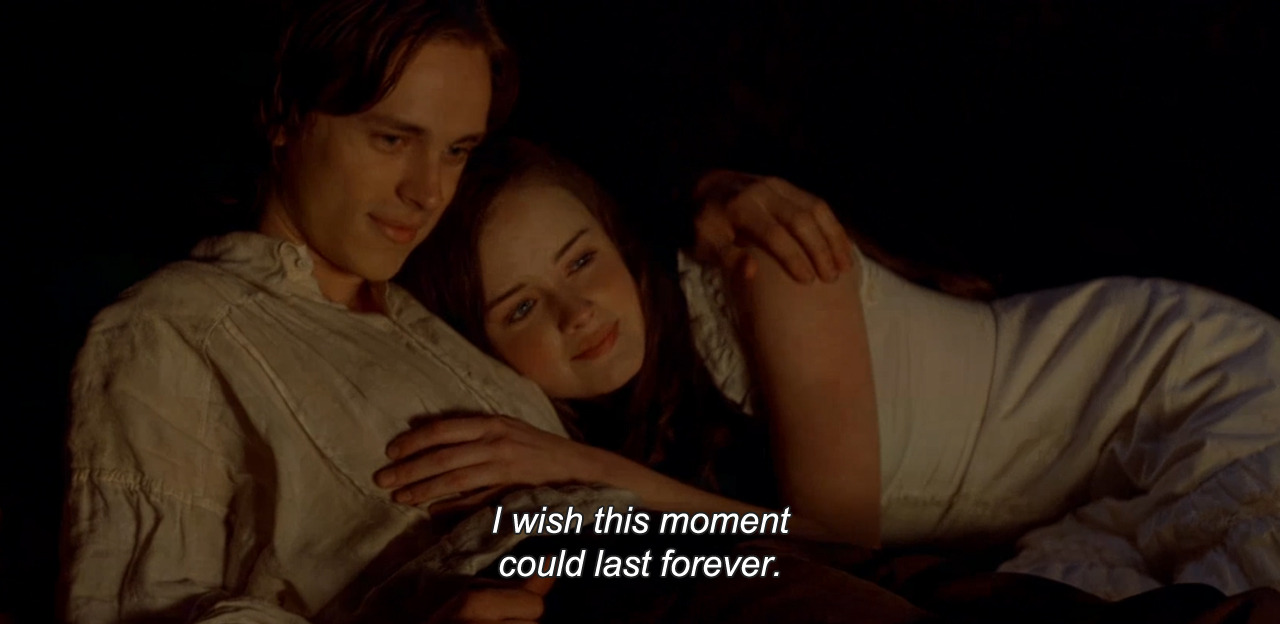Which is more devastating; death or a life never fully lived? This is the question that lies at the heart of the 2002 fantasy drama Tuck Everlasting. Adapted from the beloved 1975 novel the film blends adventure, romance, and surprisingly weighty themes to relate a truly timeless tale. In its exploration of growing up and growing old Tuck Everlasting offers a bittersweet story of love and loss that will resonate with old souls and the young at heart alike.
 |
| "You can't have living without dying" |
The story begins in 1914 as the US stands at the edge of World War I. Wealthy Winnie Foster seems to have every privilege and luxury that a teenage girl could want. In reality, what she wants most is the one thing that is forbidden to her; the freedom to choose her own path. When her overbearing mother announces her plan to send Winnie to a strict boarding school she rebels and retreats into the nearby woods. There, she encounters the mysterious Tuck family. In spire of their initial misunderstandings and mistrust of each other Winnie finds herself drawn to the unusual family. she soon learns the clan's quaint, old-fashioned, lifestyle masks a terrible secret; the Tucks are immortal. A century earlier the family were pioneers exploring the then unsettled frontier. Along the way, they unknowingly encountered a spring that was actually the fountain of youth. It was only after drinking from the spring's mythic waters that the family learned of its power. In the one-hundred years since they have never aged and remain unable to die. Winnie's respite from reality is soon disturbed when her new friends are threatened by the arrival of a local con-man searching for the spring. Both Winnie and the Tucks are then forced to make decisions that will impact the rest of their lives and far beyond.
Although marketed as a teen romance, Tuck Everlasting is instead a beautifully melancholic meditation upon death and what it means to truly live. At first glance, Winnie and the Tucks could not appear to be more different. Upon closer observation, however, it becomes apparent that they both are facing the same struggle to lead meaningful lives in an unfulfilling world. Winnie's life is subject to a seemingly endless series of restraints forced upon her by both her domineering mother and society. Her mother does her best to ensure that Winnie stays her "little girl" while societal expectations demand that she maintain a childlike docility and dependence upon the men in her life. As a result, her life is one in which she is prevented from fully growing or maturing.
Similarly, the Tucks are forced to live cast out from society under the constant threat of being discovered. The ever present threat of the outside world forces them to base their entire existence upon their ability to stay safely hidden. In this way, the Tucks find their lives just as controlled as Winnie's. Their isolated existence also leaves them emotionally stunted in much the same that Winnie is as they remain cut off from new experiences, people, and ideas. As a result, despite their endless time the Tucks are just as incapable of living their lives to their fullest potential as Winnie. In our youth-obsessed culture the film's emphasis upon the vital need to grow up and even grow old serves as a poignant reminder of what it truly means to be alive. Dare to live life to the fullest with Winnie and the Tucks in Tuck Everlasting.



No comments:
Post a Comment